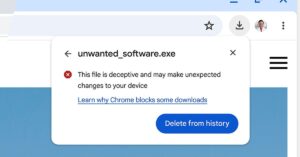Brave has announced that its web browser now includes a native cryptocurrency wallet, replacing the previous one that was based on the MetaMask wallet extension. With it, most users should have their blockchain needs covered (depending on what blockchain they use, more on that in a second): they’ll be able to buy, sell, and trade cryptocurrencies like Ethereum, store their NFTs, keep track of how much coins are selling for, and experience the magic of Web3, or websites that have built-in blockchain features.
Brave also says that its built-in wallet will take up fewer CPU resources compared to extension-based ones (like the aforementioned MetaMask) and be less susceptible to phishing or attempts to steal NFTs.
The wallet seems to work mainly with the Ethereum or Ethereum-based blockchains (ones that support EVM, like Polygon, or Layer 2 systems designed to make transactions significantly faster). Currently, that means that you’re not able to buy some of the other popular cryptocurrencies from within the wallet, like Dogecoin or Bitcoin (though you can buy wrapped Bitcoin, which is basically an Ethereum token whose value is pinned to Bitcoin’s). But hey, given that a lot of NFTs are stored on Ethereum, you can at least use Brave Wallet to store those. Brave also says that it’s in the process of adding support for Bitcoin and other blockchains.
:no_upscale()/cdn.vox-cdn.com/uploads/chorus_asset/file/23019703/Screen_Shot_2021_11_16_at_11.12.41.png)
Brave has been paying attention to the blockchain, and websites built on it, for quite a while. Years ago it started recommending that people install MetaMask if they found themselves on a website that could connect to the blockchain to provide extra functionality (usually related to payments). Now, Brave is finally getting built-in support for these Web3 sites (or “dapps,” a portmanteau of “decentralized apps” and a word I desperately hope to never hear said out loud in real life). It also recently added support for the decentralized tech that some hope will prevent NFTs from disappearing if an image-hosting site goes down.
Brave says that the wallet feature will currently be limited to its desktop browser, but that it hopes to add it to its Android and iOS versions (though it notes that iPhone users likely won’t be able to use blockchain-based websites on release). It’s always possible Brave will run into trouble with Apple’s App Review, though the company currently doesn’t seem to be aggressively against crypto — MetaMask has an iOS app, and Tim Cook has said that he’s invested in cryptocurrency and called NFTs “interesting.”
Given that Brave has paid users in blockchain tokens since it launched (which, obviously, can be stored in the Brave Wallet), it makes sense that it’s adding more and more features for people interested in crypto. And it’s likely that a good portion of Brave users will enjoy a crypto wallet, based on the browser’s long-running support for blockchain currencies and applications — as long as they’re willing to import their crypto assets, something that Brave’s tool does support for other self-custody or certain hardware wallets.
Updated November 16th, 6:05PM ET: Added information from Brave about future support for Bitcoin and non-Ethereum blockchains.





